EcoFlow DELTA 3 Plus review: Lightning-fast charging with a noisy flaw
Compact, fast and powerful power station with one frustrating flaw
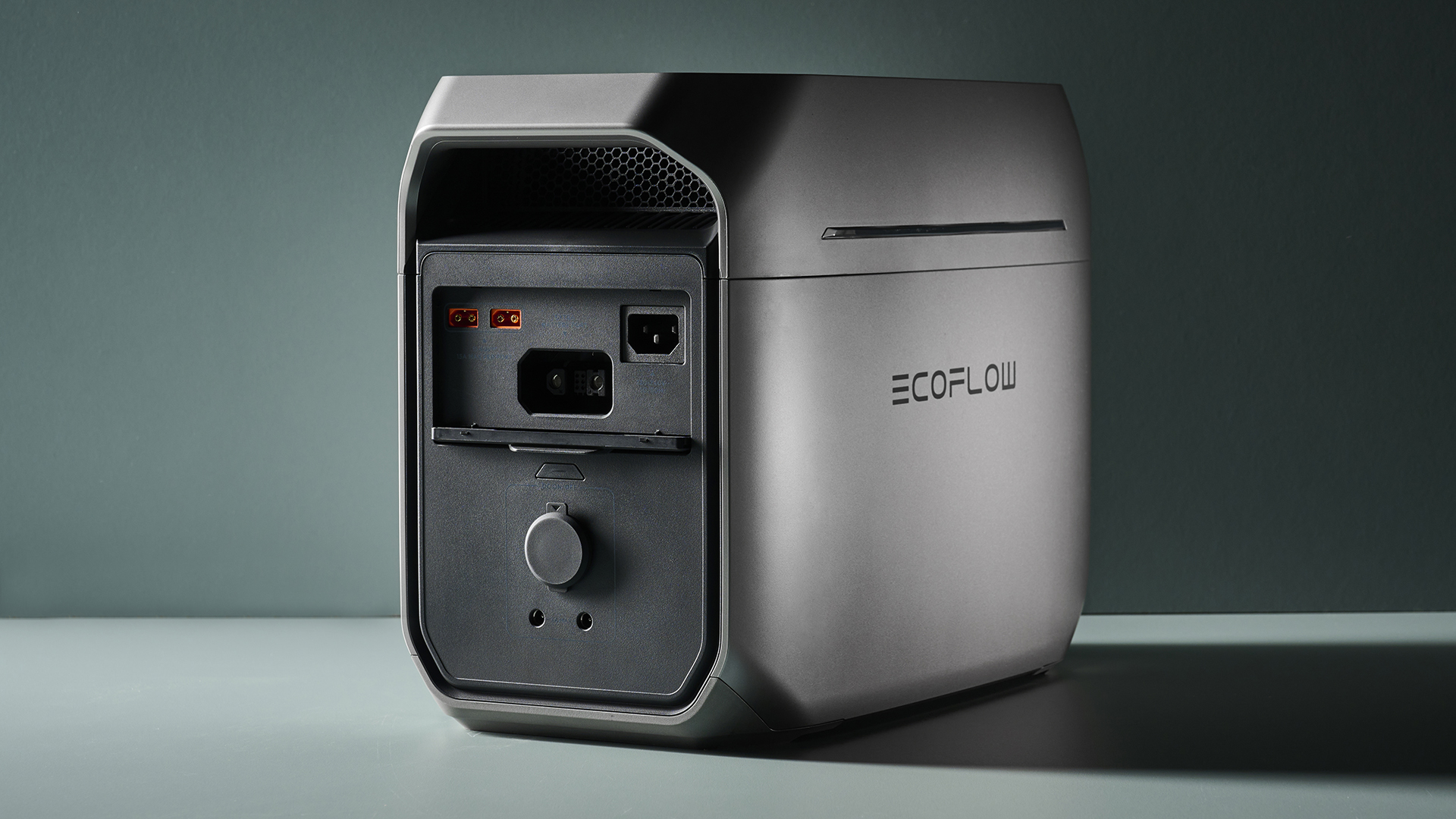


The EcoFlow DELTA 3 Plus impresses with its fast charging, compact design, and reliable power output, making it perfect for home backup and outdoor adventures. However, frequent fan noise hampers its UPS potential. Fix the fan issue, EcoFlow, and it’s easily a five-star powerhouse.
-
+
Super-fast charging
-
+
Compact, lightweight design
-
+
AC outlets are orientated differently
-
+
Long-lasting LFP battery
-
-
The fan has some issues
Why you can trust T3

I’ve been drawn to small power stations lately, and I’m not the only one. My colleague Derek wrote an excellent article about why setting up a system of small stations throughout the house is a better idea than getting a massive one, which I completely agree with.
This is partially why I was drawn to EcoFlow’s DELTA 3 Plus. Smaller than its predecessor, the DELTA 3 Plus has 1024Wh capacity and offers a 1.8kW output – more than enough to provide an Uninterruptible Power Supply (UPS) for my MacBook and a few other peripherals in my office. It also charges fast, making it an ideal choice for outdoor pursuits.
Sadly, it has one major design flaw that makes it less suitable for UPS. However, it has many other benefits that make the DELTA 3 Plus an excellent choice for those seeking a small portable power supply as a backup option for power cuts as well as camping/ general outdoor use.
I’ve been testing the unit for over a month, and even though I’m disappointed with the fan performance, I can’t say I’m not impressed with the DELTA 3 Plus from practically every other angle. Should it be included in T3’s best portable power station roundup, or is EcoFlow’s latest model one to miss? Let’s find out.
EcoFlow DELTA 3 Plus review
Price and availability
The EcoFlow DELTA 3 Plus was launched in December 2024 and is available to buy now at EcoFlow US, EcoFlow UK and EcoFlow AU, with prices from $799/ £899/ AU$2,300. As you’d expect, the company offers the unit in many configurations, some of which can include a solar generator bundle and alternator chargers.
Specifications
- Capacity: 1024Wh (expandable up to 5kWh)
- Max power output: 1,800W (3,200W surge)
- Charge time (0-100%): 56 minutes
- Weight: 27.6lbs/ 12.5kg
- Dimensions (L×W×H): 15.7 x 8 x 11.2 in (398 x 200 x 284 mm)
- Solar: up to 500W
- Outputs: 11
- Inputs: 2
- Durability: Said to maintain over 80% capacity after 4000 cycles
Design and build quality
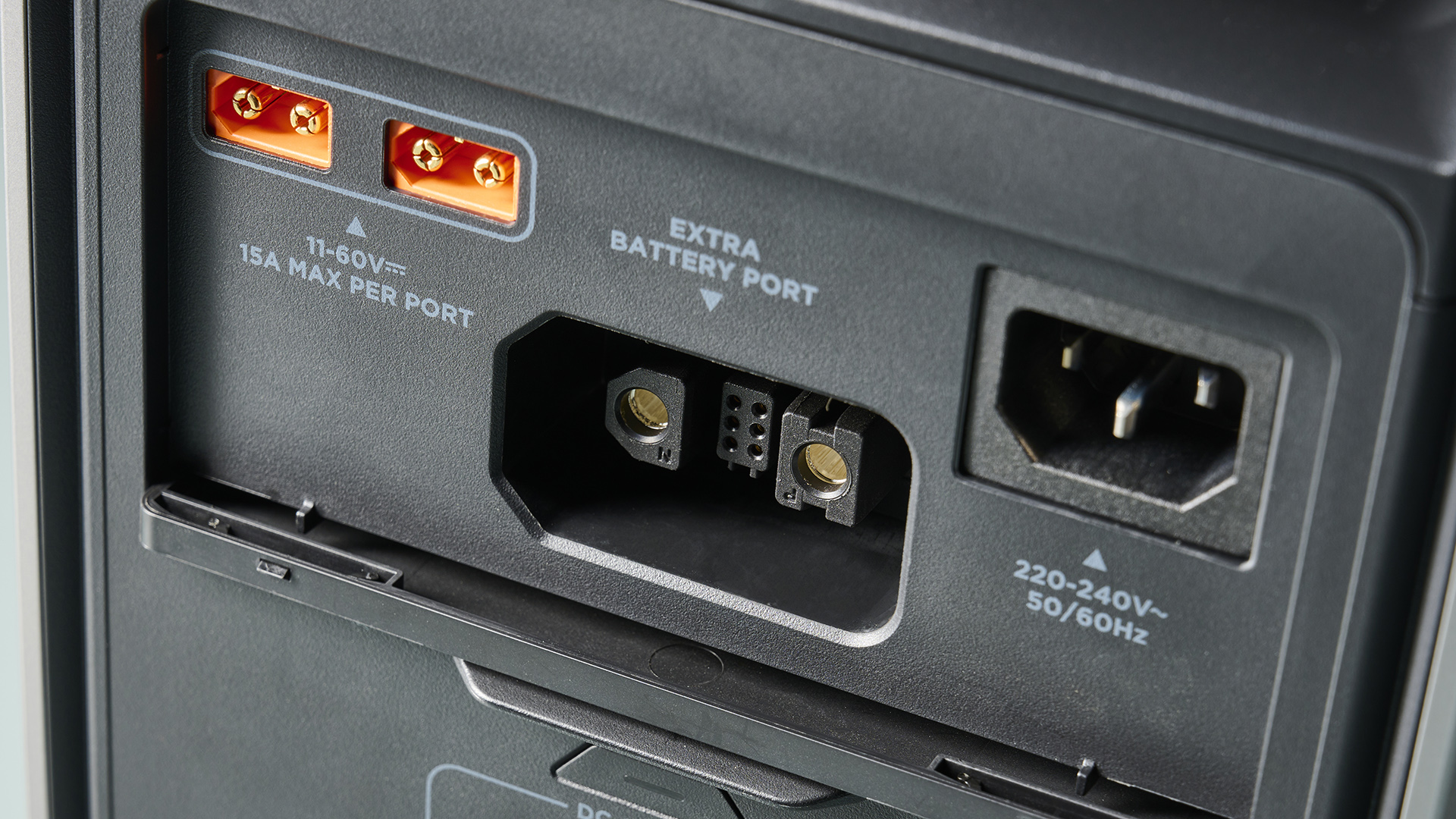
The EcoFlow DELTA 3 Plus looks very much like a power station (no surprises there). Its lightweight chassis weighs only 27.6 lbs (12.5kg) and has two handles for easier transportation. The ports are located on either side of the unit, and most outlets (eight) are grouped around the display.
I appreciate a minor design feature: the small door hiding the input ports at the back can slide into the unit, making it less prone to accidental breakage. This feature also makes the DELTA 3 Plus look more tidy, which is a big plus.
Get all the latest news, reviews, deals and buying guides on gorgeous tech, home and active products from the T3 experts
Another design choice I liked was how the DELTA 3 Plus stacks on corresponding battery extensions. In short, they fit together perfectly, which, again, is very pleasing aesthetically. I mention this because the DELTA 3 Plus provides UPS and, therefore, can be a permanent fixture in one’s home.
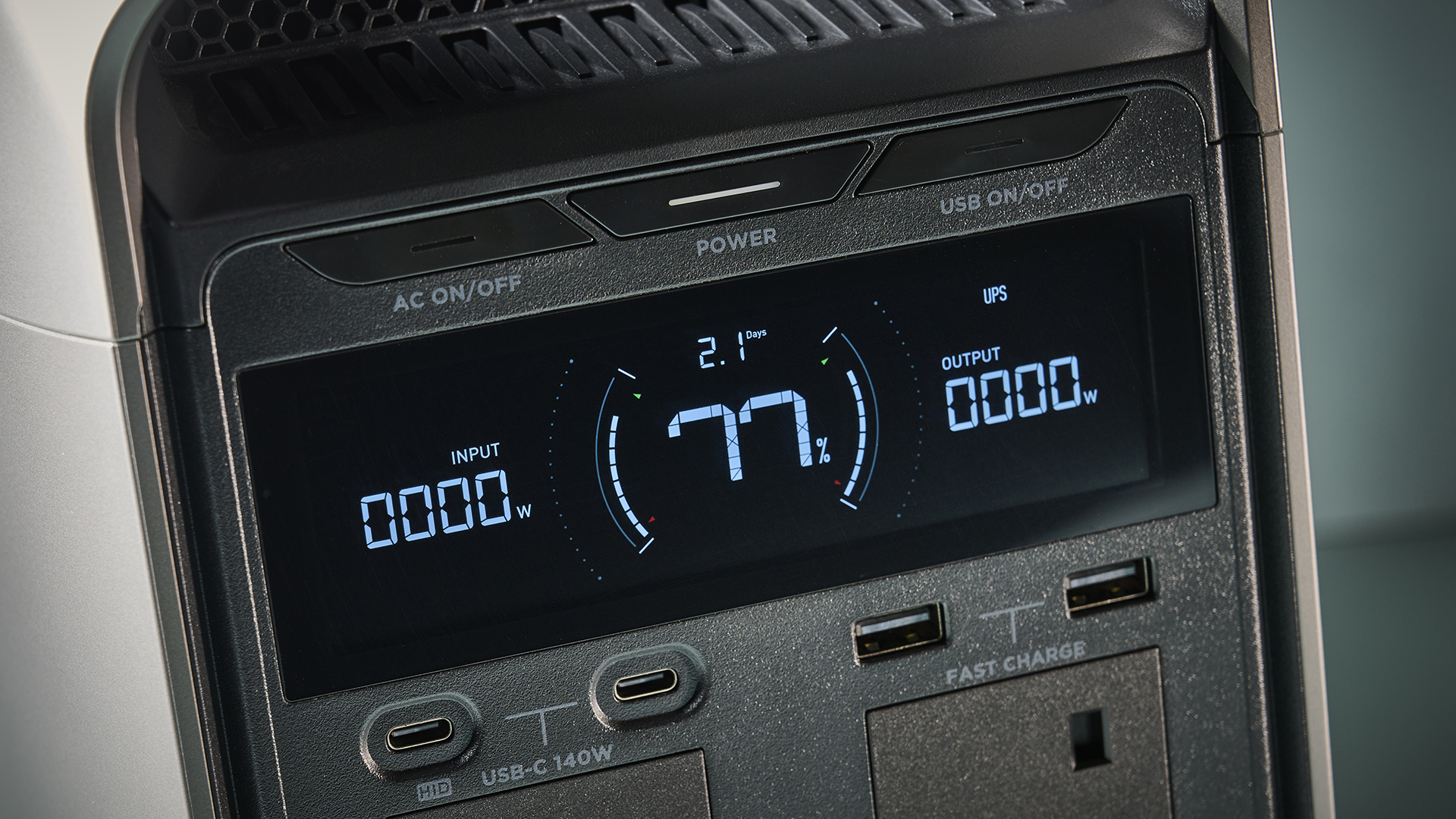
The LED is easy to read and contains all necessary information, such as current power input and output, battery percentage and how many days are left with the current power ratio (input/output).
You’ll find three physical buttons above the display. The one in the middle turns the station on and off; the one on the left turns on the AC ports, while the right button controls the USB ports. I’d prefer these closer to the ports because the labels are not easy to read (light grey or dark grey – come on!). A handy little status light inside the buttons tells if they are active.
The fan outlets are positioned somewhat under the handles, making the DELTA 3 Plus look more tidy. Considering it can be used at home permanently, I would have appreciated a MagSafe charging port at the top of the unit à la BioLite BaseCharge 1500. It’s only a small grief, though.
Even though I wouldn’t leave the DELTA 3 Plus out in the rain, the battery pack is actually IP65-rated. This means that the core of the power station can remain intact, which, to be honest, isn’t much of a consolation if the electric part of the DELTA 3 Plus is busted due to water ingress. It’s safer, at least.
The DELTA 3 Plus uses LFP (Lithium Iron Phosphate) batteries. These are known for their long lifespan, often lasting 3,000–6,000 charge cycles, and their thermal stability makes them far less prone to overheating or catching fire. They provide consistent performance, can handle deep discharges without significant degradation, and perform well across a wide temperature range.
Although LFP batteries have a slightly lower energy density, making them bulkier than other lithium batteries, they are more environmentally friendly due to the absence of toxic metals like cobalt and nickel. This combination of durability, safety, and eco-friendliness makes LFP-powered stations ideal for outdoor use, home backup, and renewable energy storage.
Features
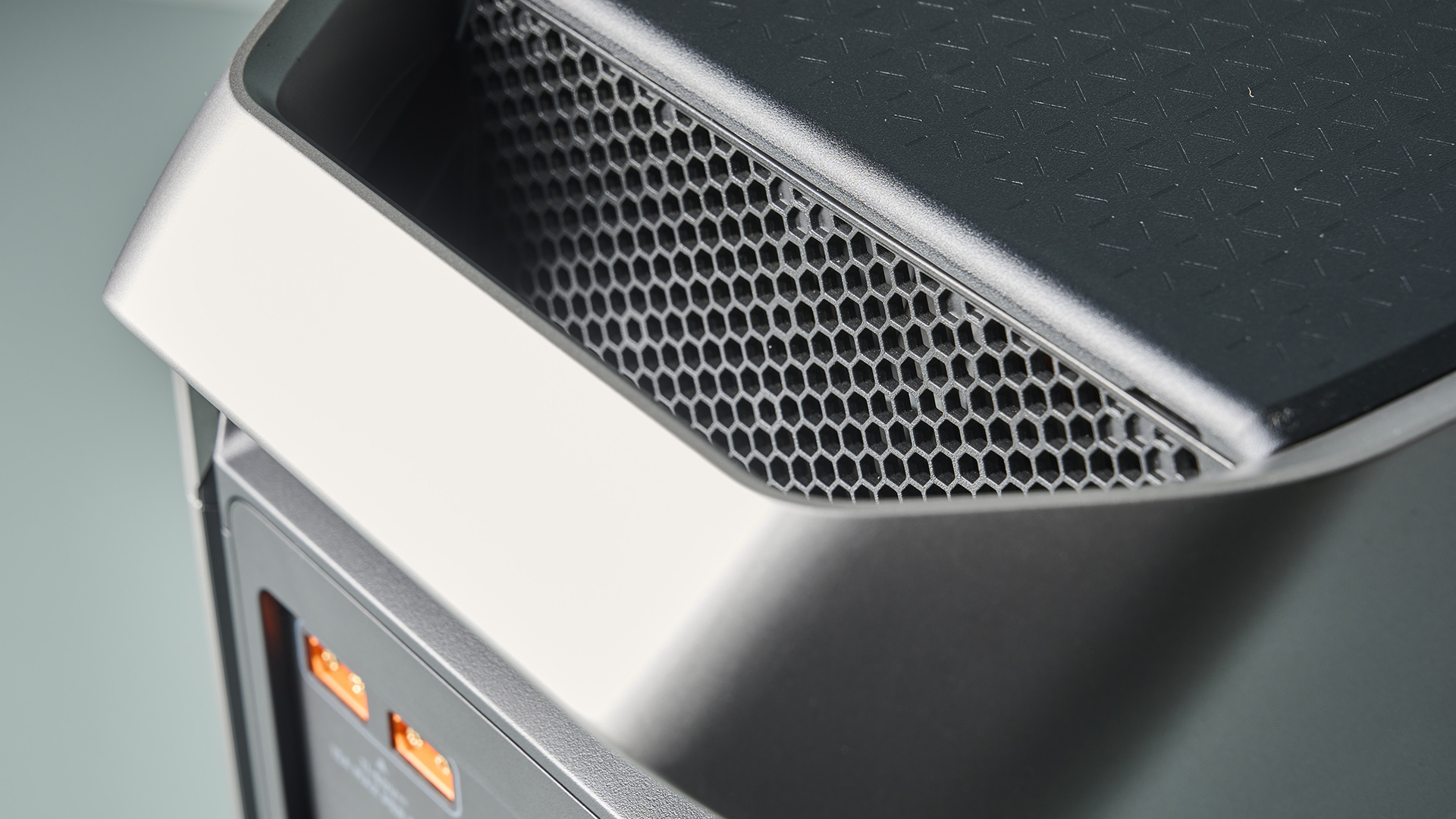
The EcoFlow DELTA 3 Plus has a maximum capacity of 1024Wh, which, according to the brand, is enough to power lights for 58 hours and an electric grill for around 40 minutes. It can, in theory, also recharge your smartphone 89 times, run your TV for eight hours, and your WiFi router for 58 hours.
The switchover – the device's ability to automatically switch between different power sources – is under 10 ms (HID), meaning the DELTA 3 Plus can transition between grid power, battery power, or solar input quickly and efficiently. Essentially, the power station can turn unreliable power sources into Uninterruptible Power Supply, keeping your electronics safe.
HID refers to a communication protocol that allows the UPS to interact directly with computers without needing additional drivers or software. Modern UPS units, such as the EcoFlow DELTA 3 Plus, use the HID-compliant USB connection so operating systems (like Windows, macOS, or Linux) can automatically detect the UPS and monitor battery status, power events, and initiate safe shutdowns during outages.
Another USP (as in, unique selling point) of the DELTA 3 Plus is that it makes little to no noise. In theory, the fans don’t come on until the power output hits 600W, enabling the power station to achieve a sub-30 dB operating volume. The volume increases to 40 dB when the output hits 1.2kW.
Ports
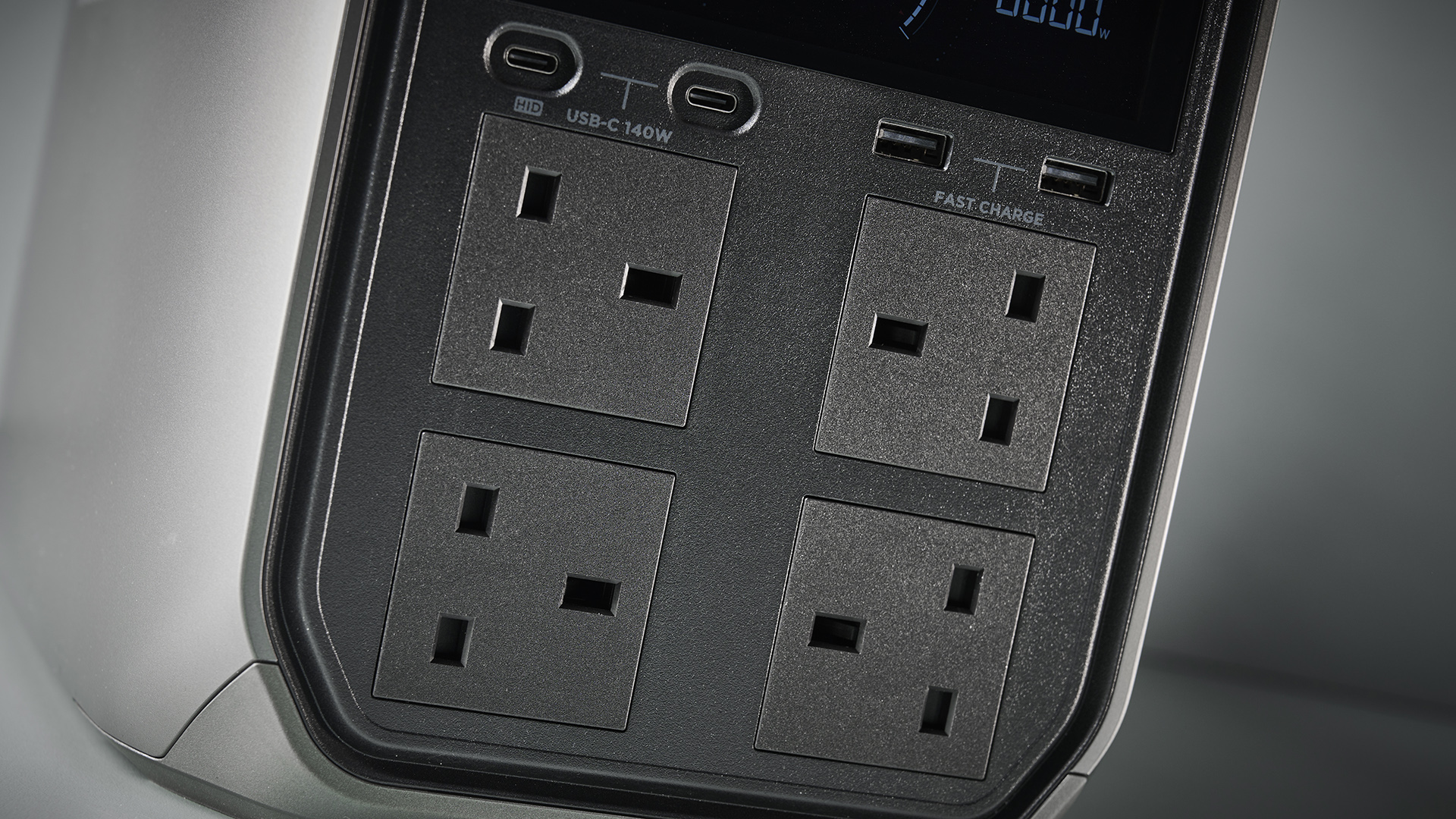
There are 11 output and two input ports on the EcoFlow DELTA 3 Plus. As mentioned above, most output ports are under the LED. These include four 1800W (Surge 3600W) AC outputs, two USB-A (Fast charging, 36W Max) and two USB-C (40W Max) outputs. There are two DC outputs (12.6V, 3A Max) and a car charger (800W) output at the back.
One handy feature of the unit is that the AC ports are rotated. This is useful if you have AC leads with different orientations – it’s less likely to get messy if they can be positioned away from each other.
The two solar ports and the AC input are under the magical disappearing flap at the back. The DELTA 3 Plus can take up to 500W solar power, recharging the battery in around two hours (130 minutes is the official number). AC charges the unit much faster, in just under one hour (56 minutes, officially).
Performance
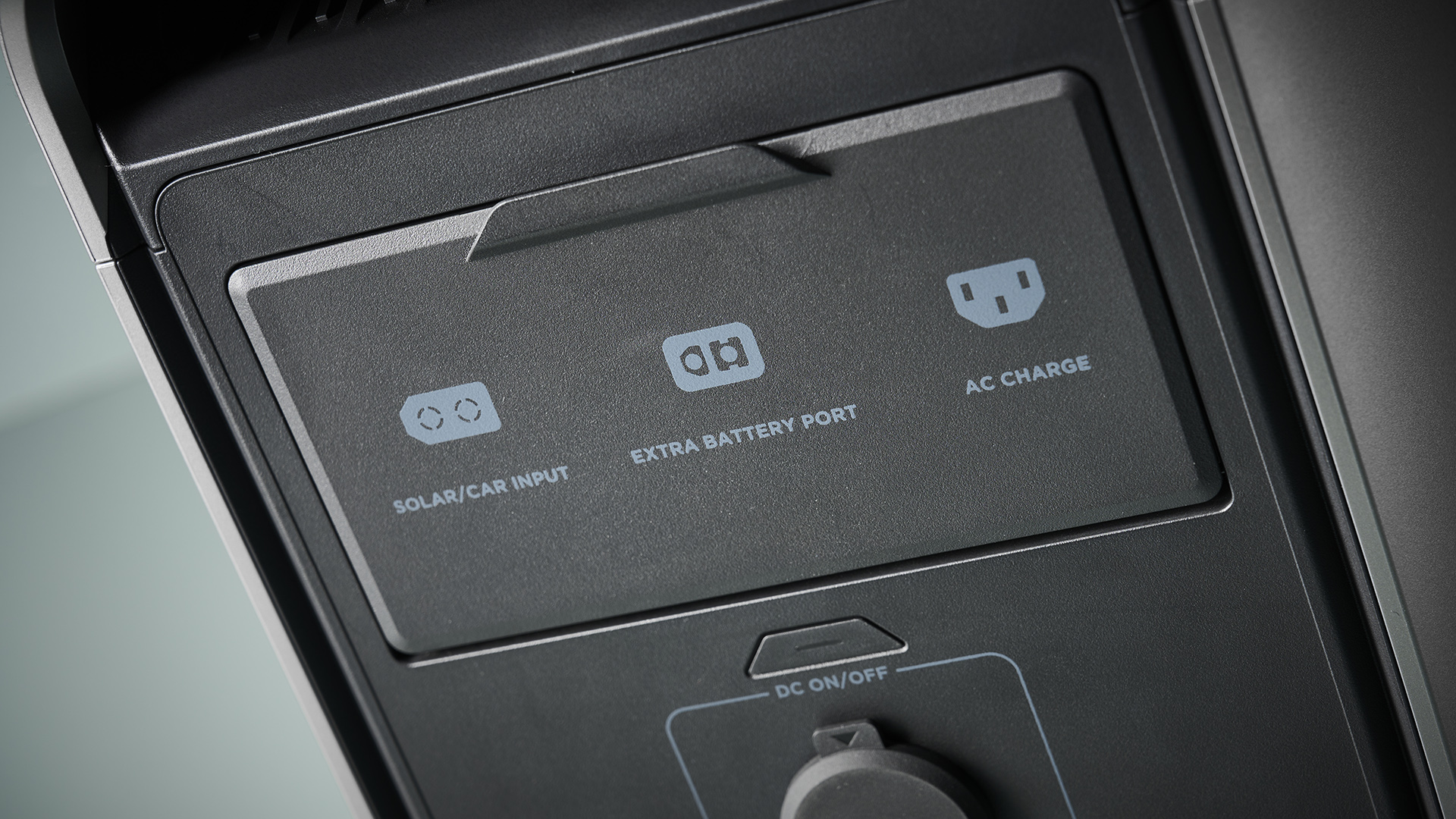
The EcoFlow DELTA 3 Plus is a formidable compact power station. I liked the clear, easy-to-read LED, which isn’t overcrowded and shows only the information I need. (You can always use the EcoFlow app if you need more data.) Like most power stations, operation is as simple as plugging in your desired electrical devices and allowing the magic to happen without any external input.
The station can handle multiple devices simultaneously. I didn’t quite go bananas during testing, but the DELTA 3 Plus easily tackled my MacBook, iPhone, and a couple of other peripherals simultaneously.
One area where the unit underperformed was sound. In theory, the DELTA 3 Plus should make a sound under 600W of power output. However, it was constantly using the fans as soon as I turned the port on. I often didn’t have to plug anything in, either; the unit was keeping its temperature down in anticipation (I assume).
This wouldn’t be a massive issue, but since I wanted to utilise the DELTA 3 Plus as a UPS, I found this flaw quite bothersome. In an ideal world, I would plug in the unit to the wall socket, plug in my devices into the DELTA 3 Plus and forget about it. It’s hard to do when you can hear the fans coming on rhythmically every minute.
I thought it might just be me being special, but other reviews also mentioned this issue (e.g. this one). Even though it’s something that I feel could be addressed with a software update, if the linked video is to be believed, the company has yet to address the issue.
Of course, you can use the DELTA 3 Plus for a variety of purposes (e.g. camping), but given the low switchover and the sleek design – and comparatively high asking price – I would expect it to work well as a UPS system.
On the other hand, EcoFlow power stations generally work well with third-party solar panels and accessories despite the company selling its own. Many brands try to limit compatibility via specialised connectors (e.g. DJI Power 500 and its SDC Lite port); I’m glad to see EcoFlow is going down a different path.
Verdict

The EcoFlow DELTA 3 Plus boasts super-fast charging, reaching full capacity in just 56 minutes, and offers a seamless <10 ms UPS switchover for uninterrupted power. Its thoughtful design includes rotated AC outlets for easier cable management and stackable battery extensions for expansion. The use of LFP battery chemistry ensures a long lifespan and enhanced safety.
However, the unit's fan performance is a significant flaw, activating frequently even under low loads, which limits its effectiveness as a quiet UPS. Despite this, the DELTA 3 Plus delivers excellent performance, versatility, and compatibility with third-party solar panels.
Once EcoFlow sorts out the fan issue (the sooner, the better, really), I’ll update this review and give it five stars. Until then, it shall remain four stars, meaning that the DELTA 3 Plus is a great power station, albeit imperfect.
Also consider
Bluetti AC200P: Offers a larger 2,000Wh capacity compared to the DELTA 3 Plus, making it better for extended off-grid use, though it’s bulkier and slower to charge.
Jackery Explorer 2000 Plus: Provides more power and expandable capacity but lacks the DELTA 3 Plus's ultra-fast charging and seamless UPS switchover.
Anker SOLIX F2000 (PowerHouse 767): Matches EcoFlow’s fast charging with GaN technology and offers a rugged build, but it’s heavier and less compact.

Matt Kollat is a journalist and content creator for T3.com and T3 Magazine, where he works as Active Editor. His areas of expertise include wearables, drones, action cameras, fitness equipment, nutrition and outdoor gear. He joined T3 in 2019.
His work has also appeared on TechRadar and Fit&Well, and he has collaborated with creators such as Garage Gym Reviews. Matt has served as a judge for multiple industry awards, including the ESSNAwards. When he isn’t running, cycling or testing new kit, he’s usually roaming the countryside with a camera or experimenting with new audio and video gear.